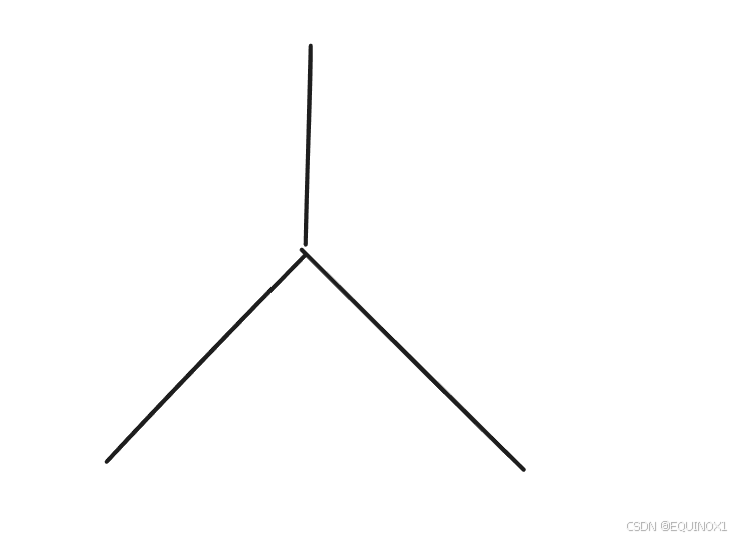一、题目
1、题目描述
2、输入输出
2.1输入
2.2输出
3、原题链接
二、解题报告
1、思路分析
2600的题,但是不算很困难。
先考虑暴力做法,如何得到两条不相交的路径?
枚举删除的边,得到两棵子树,分别在两棵子树上进行dfs找最长路径
时间复杂度O(N^2)
考虑优化:换根dp
为什么能想到换根dp?
考虑答案可能"长什么样子":
1、两条路径分别在两个不相交子树中,此时,我们利用类似树的直径的求法,一次dfs就能搞定
答案就是两个 /\
2、两条路径在两棵相交子树中
这个时候答案长这个样子:

显然是由三段拼接而来的
对于根节点u,我们考虑固定子树v内的最长一段,然后考虑另外两段怎么选:
子树v1内的一段
子树v2内的一段
u向上的某段
从这三段中选两段
显然要维护根节点子树的最大值、次大值、次次大值
这个我们可以靠换根dp来进行维护
2、复杂度
时间复杂度: O(N)空间复杂度:O(N)
3、代码详解
cpp
#include <bits/stdc++.h>
using i64 = long long;
using i128 = __int128;
using PII = std::pair<int, int>;
const int inf = 1e9 + 7, P = 998244353;
struct Node {
i64 fi, se, th, fiv, sev;
};
void solve() {
int n;
std::cin >> n;
std::vector<int> a(n);
std::vector<std::vector<int>> g(n);
for (int i = 0; i < n; i ++ ) std::cin >> a[i];
for (int i = 1, u, v; i < n; i ++ ) {
std::cin >> u >> v;
-- u, -- v;
g[u].push_back(v), g[v].push_back(u);
}
std::vector<i64> subAns(n);
std::vector<Node> nodes(n);
i64 res = 0;
auto dfs1 = [&](auto&& self, int u, int fa) -> i64 {
subAns[u] = a[u];
i64 maxS = a[u], maxSubAnsV = 0;
Node& p = nodes[u];
for (int v : g[u]) {
if (v == fa) continue;
i64 s = self(self, v, u);
res = std::max(res, maxSubAnsV + subAns[v]);
maxSubAnsV = std::max(maxSubAnsV, subAns[v]);
subAns[u] = std::max(subAns[u], maxS + s);
maxS = std::max(maxS, s + a[u]);
if (s > p.fi) {
p.th = p.se, p.se = p.fi, p.fi = s;
p.sev = p.fiv, p.fiv = v;
}
else if (s > p.se) {
p.th = p.se, p.se = s;
p.sev = v;
}
else if(s > p.th)
p.th = s;
}
subAns[u] = std::max(subAns[u], maxSubAnsV);
return maxS;
};
dfs1(dfs1, 0, -1);
auto dfs2 = [&](auto&& self, int u, int fa, i64 maFa) -> void {
Node& p = nodes[u];
for (int v : g[u]) {
if (v == fa) continue;
if (v == p.fiv) {
res = std::max(res, subAns[v] + a[u] + p.se + std::max(p.th, maFa));
self(self, v, u, a[u] + std::max(p.se, maFa));
}
else {
i64 s = p.se;
if (v == p.sev) s = p.th;
res = std::max(res, subAns[v] + a[u] + p.fi + std::max(s, maFa));
self(self, v, u, a[u] + std::max(p.fi, maFa));
}
}
};
dfs2(dfs2, 0, -1, 0);
std::cout << res;
}
int main(int argc, char** argv) {
std::ios::sync_with_stdio(false), std::cin.tie(0), std::cout.tie(0);
int _ = 1;
// std::cin >> _;
while (_ --)
solve();
return 0;
}

